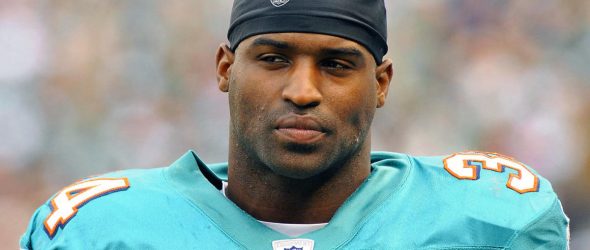Ricky Williams had known that the NFL’s leniency towards marijuana use was in the cards around 2014. That was when the league announced that it was increasing its maximum threshold for THC allowed in the body.
He told Mina Kimes on the ESPN Daily podcast that once this change was made, an even bigger change was on its way.
As Kimes hints at in one of her questions to Williams, the topic of marijuana policy reform within the league is one that’s close to the former running back’s heart, for better and for worse. In 2004, consecutive failed drug tests due to marijuana had a hand in forcing the then-27-year-old Dolphins player to announce his retirement, and a failed test in 2006 — though it’s not clear what the reason for the failure was — spoiled the second season of his comeback.
It would be easy to blame the 1998 Heisman Trophy winner as an addict who lacked self-control — as former Washington quarterback Joe Theismann did at one point — but the fact of the matter is that the NFL‘s threshold for what constituted a failed drug test for marijuana was substantially lower when Williams was suspended and embroiled in controversy over his use of the drug.
The specific number was 15 nanograms of THC per milliliter of urine. To put that in perspective, by the time the NFL had upped the limit to 35 nanograms in 2014, MLB was using a 50 nanogram threshold, and the World Anti-Doping Agency was using 150. Additionally, Williams even makes it a point to tell Kimes that if he had played under that 2014 threshold, he never would have failed a test in his career.
The reformed policies across different leagues seem to be in line with changing attitudes about marijuana, both medically and recreationally, outside of the sports realm. Baseball has completely scratched marijuana from its banned substances list, and the NFL has now moved to WADA’s threshold of 150 nanograms. Of course, these league-specific limits are set in a country where 11 states and Washington D.C. have legalized marijuana, 10 states have legalized it for medical use and 15 other states have decriminalized it.
In other words, society has moved on to the point where the next Ricky Williams won’t have to worry about having their season — and career — interrupted because of testing requirements based on old social attitudes. But to Williams himself, it’s not just about that.
“I think to me it’s bigger than that,” Williams tells Kimes. “I think there’s a bigger collective issue of the relationship between labor and capital. The NFL is doing a good job … showing that the players and owners can work together so that both sides get what they want. I think that’s the bigger issue; less exploitation, and more open-mindedness in hearing what’s going to benefit both sides. That’s reflected in the speed with which this new collective bargaining agreement was ratified.”


